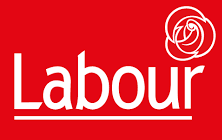
The Labour Party believes the development of land should be led by public bodies and communities rather than private developers and has recommended a range of changes to wrest back the control of land and make housing more affordable for the British people.
In its Land for the Many report, it recommends setting up public development corporations that would be given the power to purchase, develop, and sell land in the public interest and build new towns and communities.
It would like to see the Land Compensation Act reformed to enable public authorities to buy land at prices closer to its current value rather than potential residential value - a measure Labour believes could reduce the cost of building affordable housing by 50%.
It advocates giving more power to local authorities to set and vary planning fees. This would empower them to raise costs for applications that ignore policies. It proposes putting an end to the permitted development rights that allow the conversion of office and agricultural buildings into housing without planning permission.
It also wants to stop the selling off of public land to the highest bidder. Instead, it wants public bodies to use the land they own for high quality affordable housing or to develop it for other social ends.
Community focus and the public realm
The report contains a distinct community flavour. If elected, the authors say a Labour Government would support the creation of Community Land Trusts, community-led housing, and encourage Community Right to Buy based on the Scottish model.
It recommends introducing compulsory sale orders to give public authorities the power to acquire vacant or derelict land. When this land is put to auction, community groups would be offered first right of refusal and financial support to help them buy the land.
The aforementioned Community Land Trusts wouldn’t just be focused on housing; these trusts would buy rural land for farming, forestry, conservation, rewilding, and catchment protection.
In terms of the public realm, the report says public realm space should be a planning requirement for all new developments with open space, and it would like to see National Planning Policy Guidance adjusted to provide land for community food growing projects in green belts, especially those by railway stations and connecting to city centres
Second properties slammed
The report aims to come down a lot harder on two groups: second property owners and offshore owners of UK properties.
To clamp down on the buy-to-let sector, it recommends making tenancies open-ended and capping annual increases in rent. It also aims to firmly restrict and regulate buy-to-let mortgages, tax empty homes and second homes at a higher rate, increase capital gains tax for second property owners, and introduce a surcharge for properties owned by non-UK residents. It also says that business rates should be replaced by a land value tax that is based on the rental value of local commercial land.
Means to this end
The goal of the report’s many measures is to bring down the cost of housing for people and provide more spaces for the public to enjoy.
"By addressing the crucial yet neglected issues we have identified in this report, we can help to build a nation whose wealth is used for the good of all," the report concludes.
"By recognising the underlying causes of inequality, exclusion, and environmental destruction, and answering them with the positive measures we have proposed, we can attend to some of Britain’s perennial dysfunctions. Land is the platform on which all prosperity and wellbeing is built. It should be used for the many, not just the few."
One of the report’s authors, well-known environmental activist George Monbiot, adds: "Dig deep enough into many of the problems this country faces, and you will soon hit land. This report aims to put land where it belongs: at the heart of political debate and discussion. It proposes radical but practical changes in the way land in the UK is used and governed."
